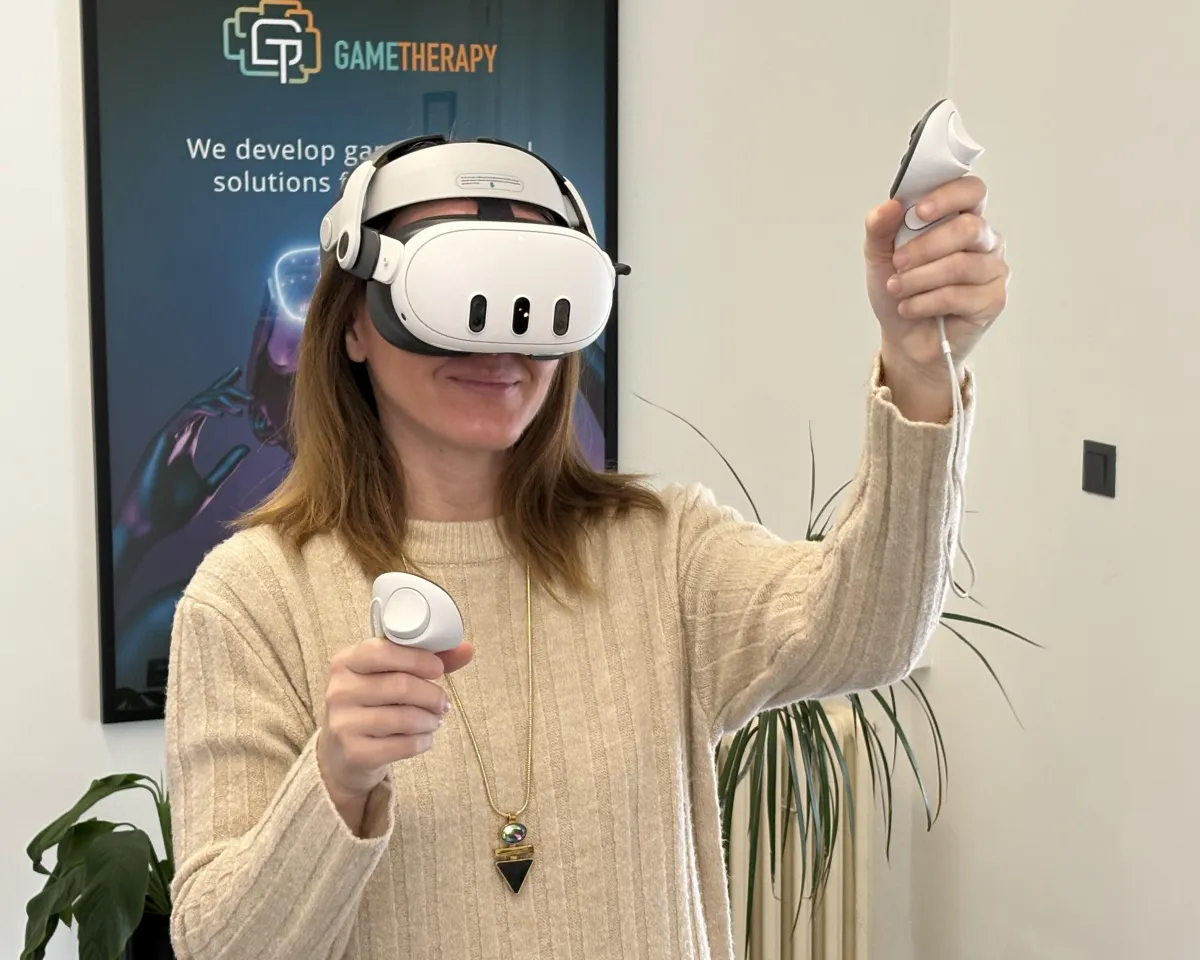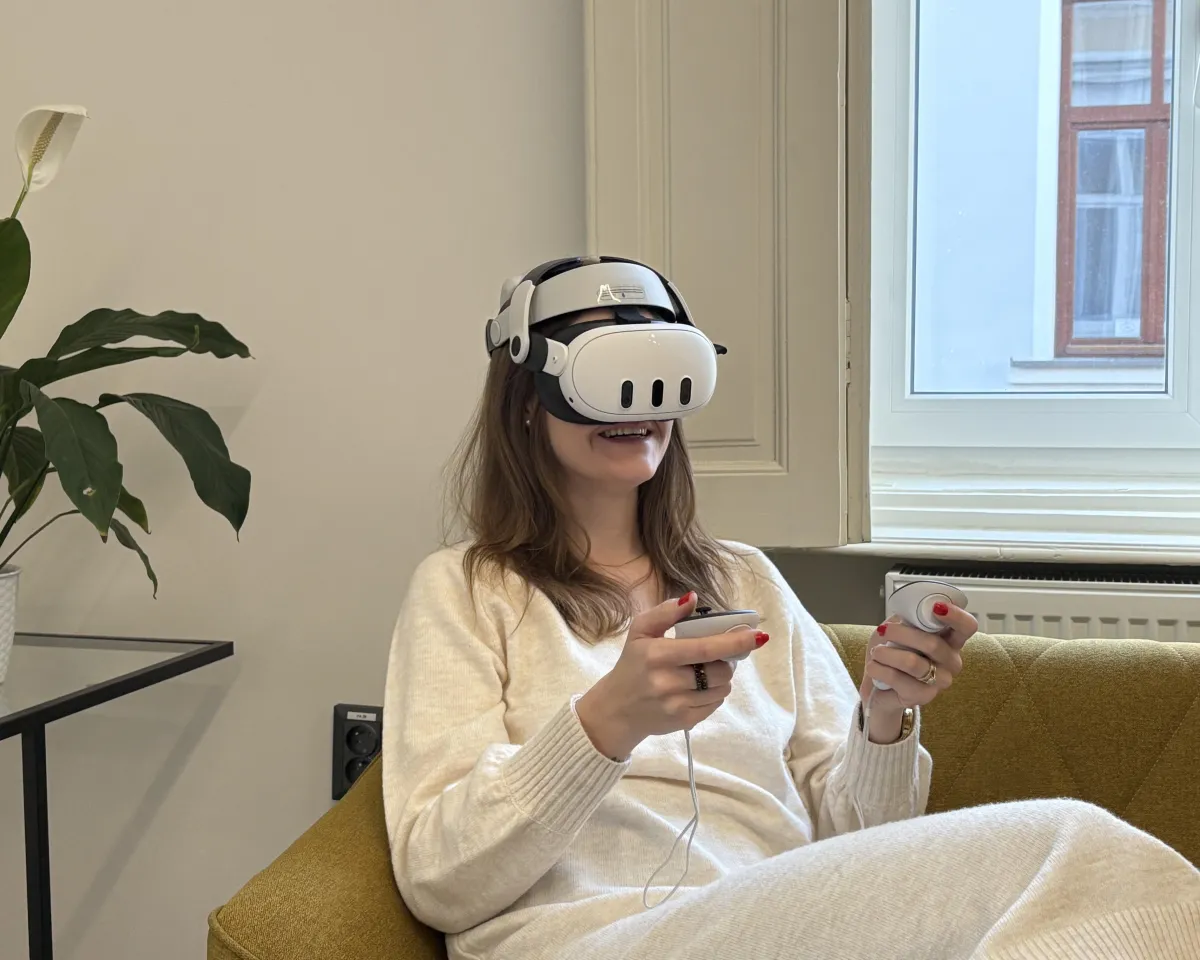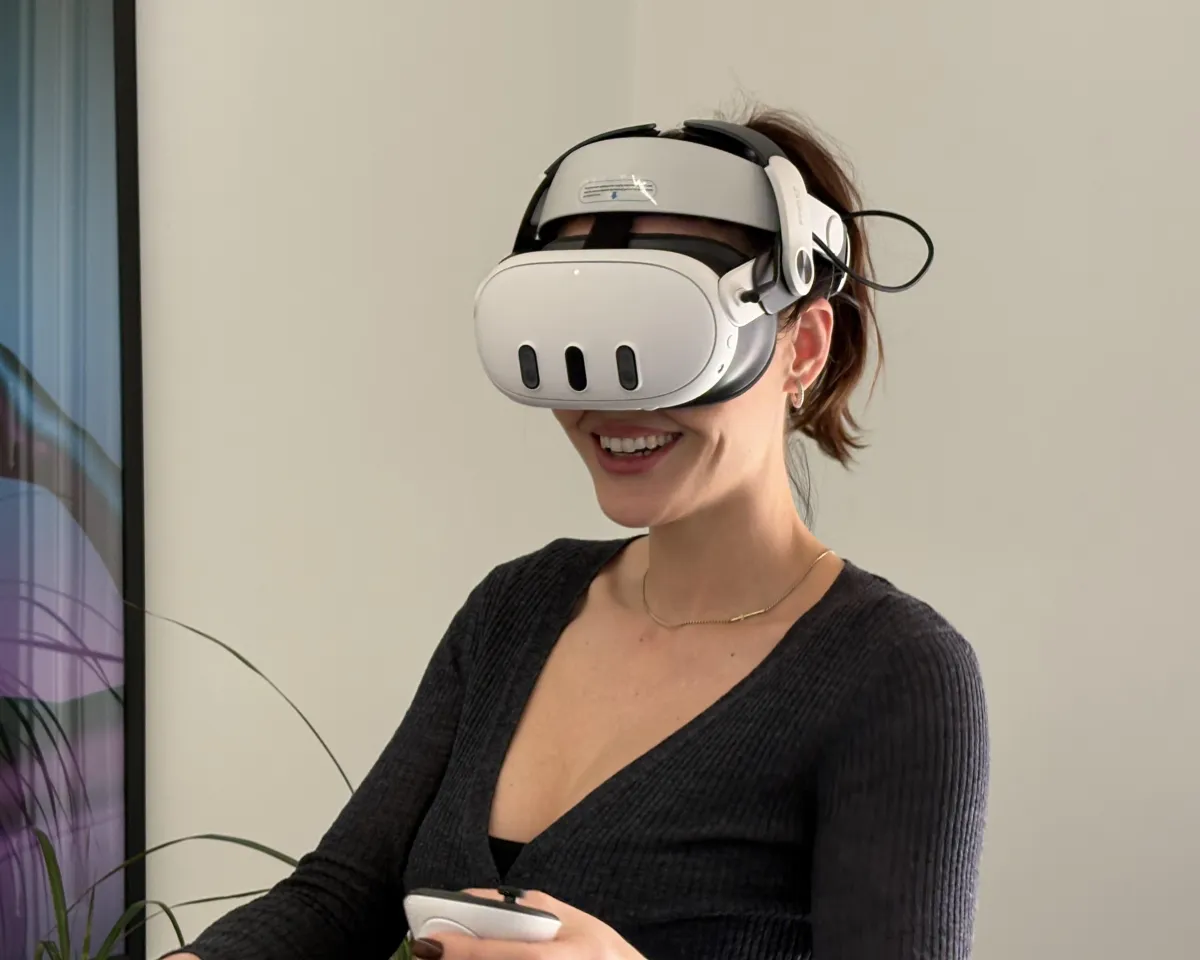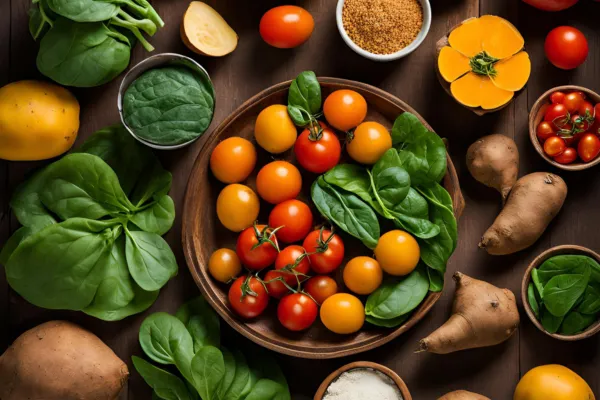BRIDGING RESEARCH, TECHNOLOGY, AND THE GAMING WORLD
Your partner in cutting-edge software development
Our mission is to transform human well-being and human-computer interaction. We do this by integrating virtual reality, augmented reality, and artificial intelligence technologies. At the heart of our philosophy is game-therapy. We create innovative, scientifically grounded, yet playful solutions for a wide range of challenges.

IMPACTFUL TOOLS FOR A BETTER QUALITY OF LIFE
Our products
ClaustrOFF
A game created with cutting-edge research to help you overcome fears in a safe, engaging, and effective way
NeuroBoostVR
Innovative exercises for seniors and others to improve motor skills, balance, and orientation with simple, effective activities
VIRADIA
Virtual Reality Platform for Early Diagnosis of Neurodegenerative Diseases, Revolutionizing Neurological Diagnostics
Experience the full power of VR for positive well-being
With a commitment to innovation and the transformative power of VR, we aim to make a lasting impact on mental health, education, industry, and personal growth, all grounded in scientific research and designed to enhance well-being worldwide.

GROWTH THROUGH INNOVATIONS
The GAMETHERAPY model
We harness the power of new technologies. By making care and training more accessible and tailored, we empower individuals and organizations to thrive. Rooted in scientific research, our innovative approach drives meaningful change, transforming mental health, education, healthcare, industry, and personal growth on a global scale.
SOLUTIONS THAT MAKE AN IMPACT
Immersive solutions for mental health and beyond
Our primary focus is on creating immersive applications that empower individuals to overcome challenges like anxiety, phobias, and neurological conditions. These solutions are designed to enhance well-being and unlock potential across various aspects of life, showcasing our expertise in innovative and impactful technologies.
Engaging VR/AR solutions for soft skills training
Evaluation in neurology and rehabilitation
General education
Personal development
Industrial training
Industry 5.0 applications

Join the Mind Heaven Community!
Be part of our journey to transform mental health care and well-being through innovation and gamification. By signing up, you’ll gain access to exclusive psychological content, enjoy discounts on our products, and stay updated with the latest news about our projects. You’ll also discover unique content like game stories and behind-the-scenes insights into our app development process. We value your ideas and feedback to make our games even better. Join us, become a co-creator, and help shape the future of the Mind Heaven Community!

Foods That Help Reduce Anxiety: A Nutritional Approach
Foods That Help Reduce Anxiety: A Nutritional Approach

"What you eat has a direct impact on your brain. By choosing the right foods, you can nourish both your body and mind, helping to reduce anxiety naturally." – Dr. Martin Polák
Anxiety affects millions of people worldwide, but did you know your diet can play a vital role in managing it? Scientific research reveals that certain foods can help reduce stress and anxiety by supporting brain health and balancing your body’s systems. In this article, we’ll explore the top foods to include in your diet for a calmer mind and a healthier you.
The Link Between Diet and Anxiety
Your brain and gut are closely connected through the gut-brain axis, which influences your mood and mental health. Nutrients from food play a critical role in neurotransmitter production, inflammation control, and stress hormone regulation. A balanced diet rich in whole, nutrient-dense foods can significantly improve how you manage anxiety.
Top Foods to Help Reduce Anxiety
1. Fatty Fish
Fatty fish like salmon, mackerel, and sardines are rich in omega-3 fatty acids, particularly EPA and DHA.
Why it helps: Omega-3s reduce inflammation and regulate neurotransmitters like serotonin, which influence mood.
How to include it: Aim for two servings of fatty fish per week. Try grilled salmon or mackerel on a salad for a healthy, anxiety-reducing meal.
2. Dark Leafy Greens
Spinach, kale, and Swiss chard are packed with magnesium, a mineral linked to anxiety reduction.
Why it helps: Magnesium helps regulate the hypothalamic-pituitary-adrenal (HPA) axis, which controls your stress response.
How to include it: Add leafy greens to smoothies, salads, or sauté them with garlic and olive oil for a calming side dish.
3. Berries
Blueberries, strawberries, and raspberries are high in antioxidants, including vitamin C.
Why it helps: Antioxidants combat oxidative stress, which can contribute to anxiety. Vitamin C also supports adrenal health, helping your body manage stress better.
How to include it: Enjoy berries as a snack, mix them into yogurt, or add them to your breakfast oatmeal.
4. Fermented Foods
Yogurt, kefir, sauerkraut, and kimchi contain probiotics that support gut health.
Why it helps: A healthy gut microbiome is linked to lower levels of anxiety due to its influence on the gut-brain axis.
How to include it: Add a serving of fermented foods to your daily diet. A yogurt parfait with granola and fruit is a simple way to start.
5. Whole Grains
Brown rice, quinoa, and oats are excellent sources of complex carbohydrates.
Why it helps: Complex carbs stabilize blood sugar levels, which can prevent anxiety-inducing mood swings. They also boost serotonin production.
How to include it: Swap refined carbs for whole grains in your meals, such as using quinoa instead of white rice.
6. Nuts and Seeds
Almonds, walnuts, chia seeds, and flaxseeds are rich in healthy fats, magnesium, and zinc.
Why it helps: Magnesium calms the nervous system, while zinc supports brain health and reduces inflammation.
How to include it: Snack on a handful of nuts or sprinkle seeds over salads and yogurt.
7. Green Tea
Green tea contains L-theanine, an amino acid known for its calming effects.
Why it helps: L-theanine promotes relaxation by increasing alpha brain waves and reducing cortisol levels.
How to include it: Enjoy a warm cup of green tea in the morning or as a midday stress reliever.
8. Turmeric
Turmeric, particularly its active compound curcumin, has powerful anti-inflammatory and antioxidant properties.
Why it helps: Curcumin boosts brain-derived neurotrophic factor (BDNF), which helps reduce anxiety symptoms.
How to include it: Add turmeric to soups, smoothies, or golden milk for a comforting, anxiety-reducing drink.
9. Dark Chocolate
Dark chocolate (70% cocoa or higher) is rich in flavonoids and magnesium.
Why it helps: Flavonoids improve blood flow to the brain, reducing stress, while magnesium promotes relaxation.
How to include it: Enjoy a small piece of dark chocolate as a daily treat.
10. Bananas
Bananas are a great source of vitamin B6 and potassium.
Why it helps: Vitamin B6 is essential for producing serotonin, and potassium regulates blood pressure, reducing physical symptoms of anxiety.
How to include it: Eat a banana as a quick snack or blend it into a smoothie.
Foods to Limit for Better Anxiety Management
While some foods help reduce anxiety, others can make it worse. Limit your intake of:
Caffeine: Can overstimulate the nervous system, leading to jitteriness and increased anxiety.
Sugar: Causes blood sugar spikes and crashes, which can trigger mood swings.
Alcohol: Interferes with sleep and disrupts neurotransmitter balance.
Practical Tips for Anxiety-Reducing Nutrition
Plan Balanced Meals: Include a source of protein, healthy fats, and fiber-rich carbs in every meal.
Stay Hydrated: Dehydration can worsen anxiety symptoms, so drink plenty of water.
Practice Consistency: Regular eating habits prevent blood sugar fluctuations that can trigger anxiety.
Experiment with Recipes: Make anxiety-friendly meals enjoyable by trying new recipes with the foods listed above.
Final Thoughts
Anxiety isn’t just about what’s happening in your mind—it’s also influenced by what you put in your body. By incorporating these anxiety-reducing foods into your daily diet, you can take a proactive approach to managing your stress. Start small by adding one or two of these foods to your meals, and notice how they make you feel. A healthier diet leads to a healthier mind.
References
Benton, D. (2021). The influence of diet on mental health. Frontiers in Psychology.
Gómez-Pinilla, F. (2019). Brain foods: The effects of nutrients on brain function. Nature Reviews Neuroscience.
Jacka, F. N., et al. (2022). Nutritional psychiatry: The role of diet in anxiety and depression. The Lancet Psychiatry.
Leyse-Wallace, R. (2020). Nutrition and Mental Health. Springer Science & Business Media.
Taylor, V. H., et al. (2021). The gut-brain connection in anxiety: Role of nutrition and probiotics. Psychiatric Clinics of North America.






